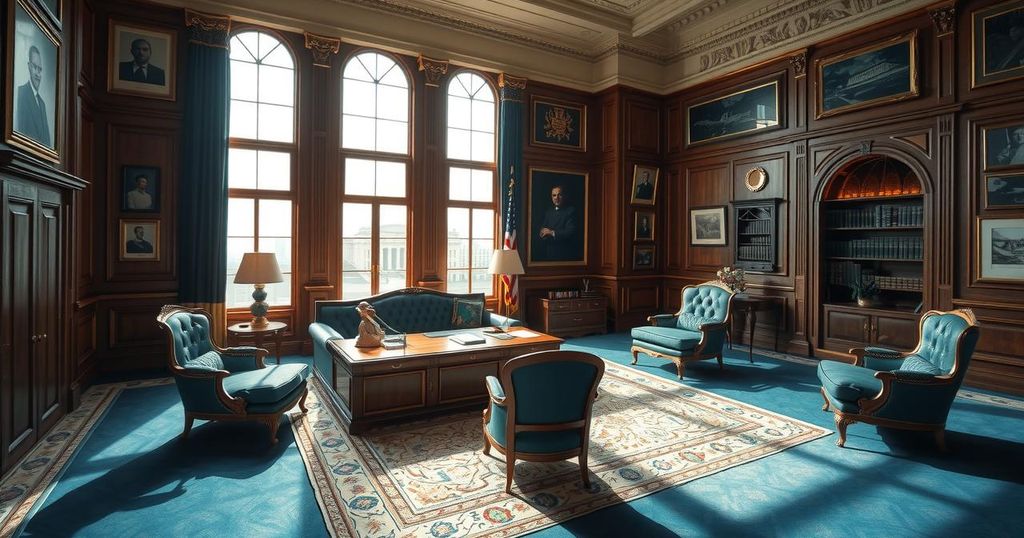Trump and Ramaphosa Engage in Tense Discussion Over False White Genocide Claims
In a tense Oval Office meeting, South African President Cyril Ramaphosa confronted U.S. President Donald Trump’s false claims regarding white genocide in South Africa. Trump presented misleading video footage, which Ramaphosa disputed, underlining the complexities of race relations. The incident underscores concerns regarding the impact on U.S.-South Africa relations amidst heightened political tensions.
In a recent visit to the White House, South African President Cyril Ramaphosa faced off against U.S. President Donald Trump regarding contentious claims of white genocide in South Africa. During this tense exchange, President Trump presented a video that he inaccurately asserted as proof of these unfounded allegations. Ramaphosa, however, did not remain silent; he firmly refuted the president’s statements, leading to a charged atmosphere in the Oval Office.
The incident raised eyebrows given the historical context and complexities surrounding race relations in South Africa. Critics of Trump have pointed to his previous comments as inflammatory and misleading, attributing to them a potential for exacerbating racial tensions. Ramaphosa clearly communicated his position, emphasizing the lack of evidence supporting these claims and stressing a commitment to reconciliation in his country.
During the encounter, Ramaphosa’s response seemed not only a defense of his nation but also a broader call for understanding regarding the realities of land reform and societal change in South Africa. His visit coincided with a significant moment in South African politics, where the topic of land redistribution remains contentious and sensitive among various constituencies.
This meeting between the two leaders, while brief, encapsulates the differences in their national narratives and illustrates the potential international ramifications when political leaders discuss such divisive issues. Trump’s promotion of the video, particularly from a platform like the White House, could have repercussions, increasing polarization not just in the U.S. but also affecting South Africa’s diplomatic relations.
The White House exchange has since drawn attention from political analysts and media outlets alike, as they dissect the implications of Trump’s statements. Many believe that Trump’s commentary could negatively impact perceptions of South Africa among American audiences, potentially jeopardizing international relations between the two countries.
The tense exchange between Presidents Trump and Ramaphosa highlights the complexities surrounding discussions of race and land reform in South Africa. Ramaphosa’s pushback on Trump’s unfounded claims of white genocide reflects not only a defense of his own country but also signifies the fragility of narratives in international diplomacy. As global leaders navigate these discussions, clarity and understanding remain paramount to avoid further polarization.
Original Source: www.theguardian.com




Post Comment